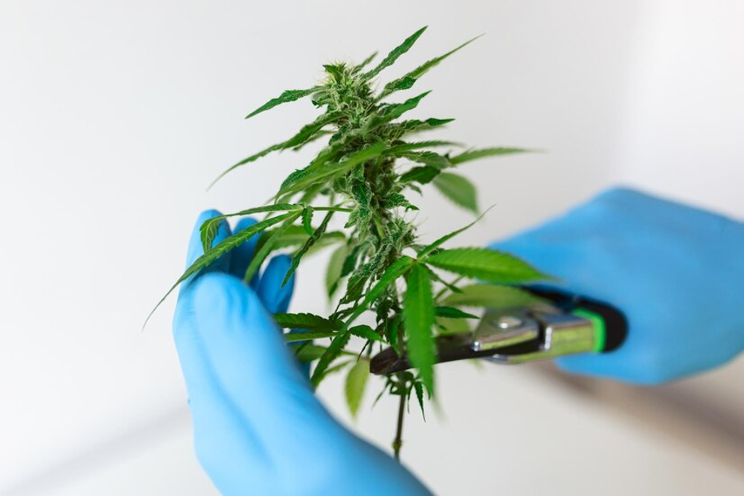EU sets cannabis standards, launches major research drive
Added on 19 July 2024

At the same time, the European Commission approved a new initiative aimed at improving access to medical cannabis and promoting its therapeutic research. ECI, short for the European Cannabis Initiative will allow activists to gather signatures to push for changes in regulations. The initiative seeks to enable the cross-border transportation of medically prescribed cannabis and allocate resources for extensive research into its therapeutic benefits. Advocates have six months to collect one million signatures from at least seven EU member states to bring this proposal to the European Commission.
One of the most significant advantages of the European Cannabis Initiative is the potential for more streamlined and supportive regulations across the EU. Currently, navigating the patchwork of different national regulations can be complex and burdensome for cannabis businesses. If the initiative succeeds, it could lead to more harmonized regulations, making it easier for you to comply with laws and reduce administrative overhead.
A unified regulatory framework would simplify the process of expanding cannabis operations into new EU member states. Instead of dealing with varying regulatory requirements in each country, a single set of standards would allow for easier market entry and expansion. This can lead to broader market access and increased sales opportunities.
According to industry leaders, these initiatives are seen as pivotal. Ethan Nadelmann, founder of the Drug Policy Alliance, noted, "The regulatory clarity and support for research are crucial steps towards integrating cannabis into mainstream healthcare. It offers a stable environment for businesses to innovate and grow". Additionally, Ben Kovler, CEO of Green Thumb Industries, emphasized that "harmonized regulations across the EU will not only streamline operations but also open new markets and foster a more competitive and innovative industry"
But despite all the benefits this legislative project may have in the long run throughout the whole union, it also has its potential drawbacks. Implementing new quality standards requires significant investments. "The increased regulatory burden could disproportionately impact smaller businesses that may not have the resources to meet these new requirements," commented a representative from the European Monitoring Centre for Drugs and Drug Addiction (EMCDDA). The need for additional testing, documentation, and production adjustments can strain financial resources, particularly for smaller enterprises.
In addition to that, the initiative could lower market entry barriers, leading to increased competition. This sentiment was echoed by Ben Kovler, CEO of Green Thumb Industries, who warned, "While harmonized regulations simplify compliance, they also invite more players into the market, which could squeeze margins and increase competitive pressure on existing businesses"
As Europe strides forward with the European Cannabis Initiative and new quality standards, cannabis business owners face a mixed bag of opportunities and challenges. The new standards require stringent compliance, pushing businesses, especially smaller ones, to invest more in production processes, testing, and documentation. This ramp-up in compliance can squeeze budgets but is crucial for maintaining product quality and consumer trust.
The opening of the market through harmonized regulations invites more players into the field, intensifying competition. Established businesses may find their profit margins under pressure as newcomers vie for a share of the growing market. Additionally, transitioning to these new frameworks isn't just a checkbox exercise. It involves navigating complex changes that can lead to fines or operational hitches if not managed correctly. This period of adjustment may also cause temporary disruptions, affecting everything from supply chains to market entries.
Research and development, while a gateway to innovation and enhanced product offerings, come with hefty price tags. Smaller enterprises might struggle to fund these initiatives alongside compliance costs. The regulatory landscape, although aimed at simplification, carries a degree of uncertainty about enforcement across various EU states. This ambiguity can complicate strategic decisions and deter long-term investments.
Moreover, there is a concern that stringent regulations might stifle innovation and ramp up operational costs unnecessarily, potentially harming the industry's creative and competitive spirit. Finally, despite regulatory progress, public perception and stigma surrounding cannabis use might lag, posing hurdles in marketing efforts and consumer acceptance, particularly in conservative regions.
In essence, while the new regulatory environment in Europe opens doors to growth and expansion, it also demands careful navigation, significant investment in compliance and innovation, and strategic adjustments to align with evolving standards and public attitudes.
With the European Cannabis Initiative and new quality standards set to transform the cannabis industry, business owners must take strategic steps to navigate this evolving landscape. The most crucial step in preparing for the upcoming business climate is understanding the new European Pharmacopoeia monograph for Cannabis flower and other regulatory requirements. Investing in compliance will be crucial to ensure that products meet the stringent quality and safety standards. Besides that,it would be wise for hemp entrepreneurs to consider upgrading their facilities and processes to adhere to the new standards. This might involve investing in new testing equipment, enhancing production processes, and ensuring robust documentation and quality control systems.
In the end, one very important question still remains at large : is the hype surrounding the European Commissions’ cannabis monograph actually worth the worry ? At this point in time, nobody can give a definitive answer, but it is definitely better to be safe than sorry.
By Daniel CIUREA
More news















